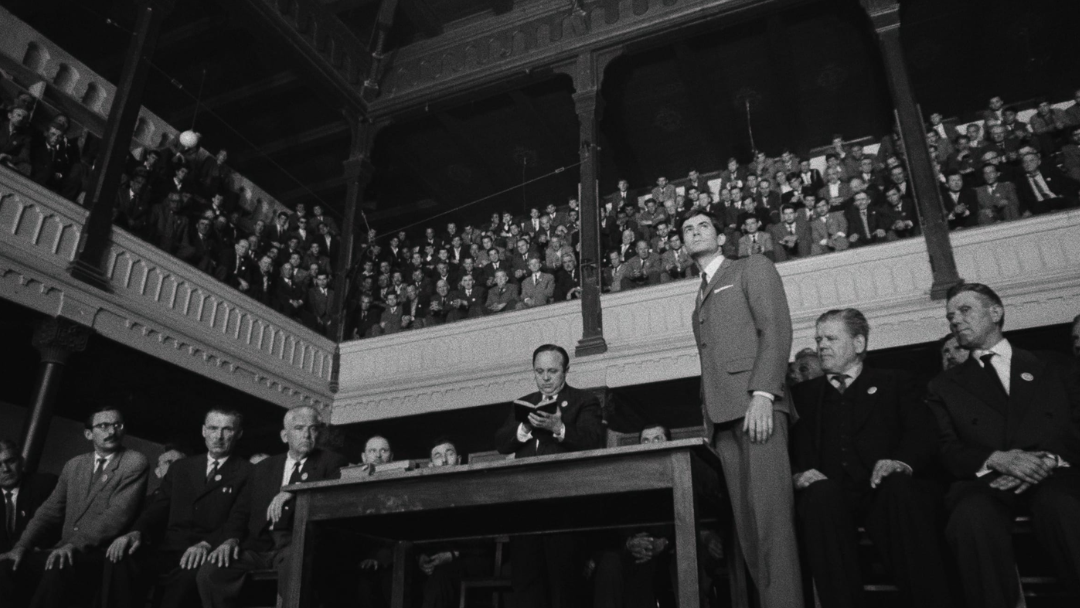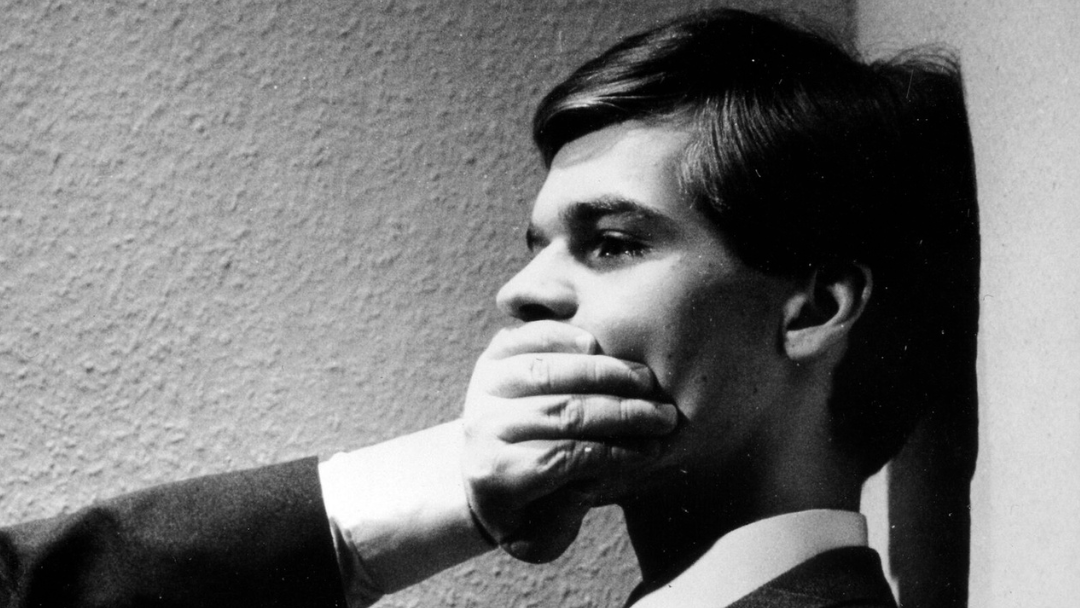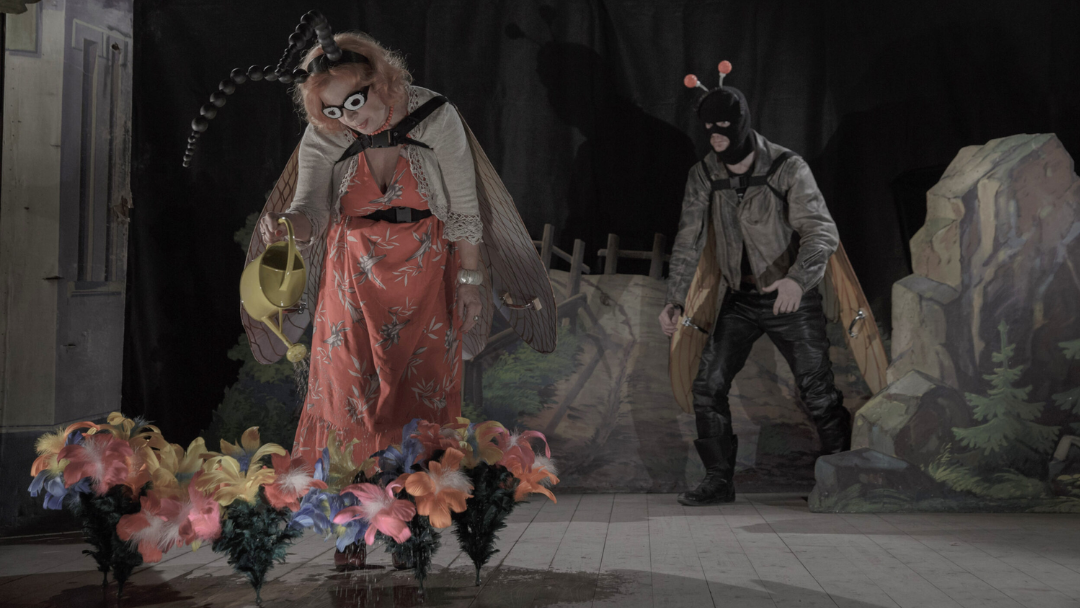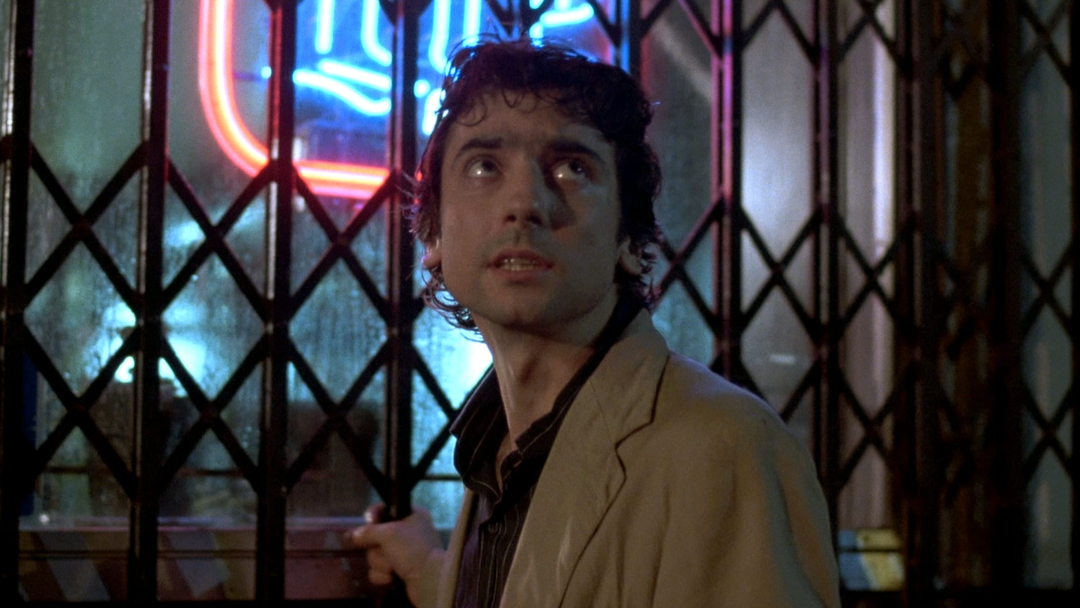
Decoding Kafka: A Cinematic Interpretation
Programmed by: Irena Čajková
Text by: Malynne Sternstein
Co-sponsored by the Goethe-Institut Chicago and the Department of Slavic Languages and Literatures.
In her obituary for Franz Kafka, Milena Jesenská writes, that her friend and erstwhile lover was "weak" in the way only noble and beautiful people can be. He recognized his own and others' "helplessness in advance" and his books "paint the horror of secret misunderstanding, of innocent guilt between people." Such a characterization of Kafka and his writing is a far cry from what the term "Kafkaesque" conjures up—the "surreal," the "oppressive," and "nightmare" world of bureaucratic suffocation. This is not to say Kafka's works do not evoke these anxieties, after all, there is plenty of hope…for God, just not for us mortals. These four films understand Kafka's realism and his dark and often slapstick sense of humor in the face of dread. Above all, they cure us of what "Kafkaesque" has come to mean and recognize that the eponymous adjective is truly not applicable to its namesake. As we celebrate the achievements of Kafka on the 100th anniversary of his death, the film adaptations of his work—or the spirit of his work—ought to undo the Kafkaesque reading and expose us to his nobility.
The Trial (1962)

Orson Welles · 119m · DCP
Orson Welles's The Trial reworks the spatial knots of Kafka's novel by making use of oversized sets in vertiginous tilts and crammed, low-ceilinged caverns in nauseatingly unsettling shots. Anthony Perkins fresh from Psycho is a Josef K. recognizable from the novel—self-serving, crudely polite, and wonderfully hard to like. Welles's web-handed Leni is more feline than amphibian, but her power is made clear, if not to Josef K., definitely to the viewer.
Tuesday, November 5th 7:00 PM
Class Relations (1984)

Jean-Marie Straub, Danièle Huillet · 127m · 35mm
Kafka's first novel Amerika is also his last. Never finished, it explores his trademark oppressive ideas around what it means to live in the current post-industrial age. Fertile ground for Jean-Marie Straub and Danièle Huillet to adapt to the screen, Class Relations brings to life the wandering journey of Karl Rossman as he explores Amerika. Powerful, enlightening, and deeply suffocating, Straub-Huillet adapts Kafka like never before.
Tuesday, November 12th 7:00 PM
Insect (2018)

Jan Švankmajer · 98m · DCP
Jan Švankmajer, known for mixed-media animation, presents here Insect. Influenced by the work of Karel and Josef Čapek, the Czech gallows humor and self-referentiality—found also in Kafka, who spent most of his life in Prague—is palpable in this mise-en-abyme dark comedy. The players and the makers of the play not only break the fourth wall, but, in nested and restless narrative, implant in the viewer the sense that they too are in an endlessly recursive world.
Tuesday, November 19th 8:00 PM
After Hours (1985)

Martin Scorsese · 97m · DCP
Paul Hackett is trapped in Manhattan. The more he desires escape, the more onerous his bonds. He meets various quirky night dwellers, think they may be commiserators, but it all goes nowhere. Kafka's work can be understood as empty of "claim"; there are no lessons to be learned, just the inflexible dilemma. So too in After Hours: stakes are high but, what are they? More than a fable of modern life in the big bad city, After Hours is a comedy that would have made Kafka, who was wont to laugh out loud when reading his own stories, chuckle.






